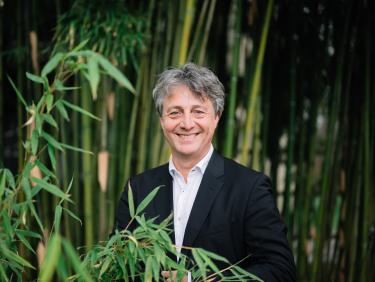Dr. Martin Maier
Researcher at the Institute of Earth Sciences at Heidelberg University, HCE member since 2017.
I have been working on geochemical processes in groundwater for over 20 years, with a focus on groundwater remediation and arsenic mobility. My research centers on the following key topics:
- Geochemical and microbiological processes, particularly in relation to arsenic mobilization.
- Use of stable isotopes (H, C, and N) to determine ongoing redox processes.
- Arsenic in groundwater in Bangladesh – causes and mitigation strategies.
- Applied research in contaminated site remediation (stimulated geochemical mobilization of arsenic in connection with pump-and-treat remediation or sustainable microbially catalyzed arsenic immobilization).
- Bridging science and practice through exchange and scientific cooperation with industry, engineering firms, and authorities.
- Knowledge transfer to the Global South through research collaboration with the University of Dhaka and the Bangladeshi Department for Public Health Engineering (DPHE).

Why I joined the HCE
Joining the HCE has made it easier for me to connect with other researchers in the fields of environmental and geosciences, as well as to engage with other disciplines beyond my immediate field. This is particularly true for the Heidelberg Institute of Global Health, with which I have maintained close collaboration since the beginning of my membership. This collaboration has led to intensive work with the Potsdam Institute for Climate Impact Research (Department of Climate Resilience) on projects in Bangladesh.
Furthermore, being part of such a network provides me with easy and competent access to experts from various faculties for my interdisciplinary research. This applies equally to my applied research in Bangladesh and to pilot studies on groundwater remediation in Germany.
My highlights so far
In 2018, I received seed funding and additional financial support from HCE for my studies in Bangladesh. These studies were conducted in collaboration with the Heidelberg Institute of Global Health (HIGH) and directly led to a third-party funded doctoral thesis (Dr. Charlotte Stirn, based at the HCE's Zukunftskolleg) and a BMBF-funded interdisciplinary project through the German Alliance for Global Health Research (GLOHRA), in cooperation with the Potsdam Institute for Climate Impact Research (PIK) and the Heidelberg-based organization AGAPE e.V.
Further project collaborations with both institutions facilitated intensive exchanges with the University of Dhaka and the NGO Agape Bangladesh. This organization has been a long-standing project partner of AGAPE e.V., whose voluntary chairmanship I assumed in 2018. Through this role, I support knowledge transfer from my scientific and practical work to the Global South.
My key partners
My key partners are based at the Potsdam Institute for Climate Impact Research (Medicine; Climate Resilience), Heidelberg University (Geosciences and Geography), the University of Manchester, UK (Geochemistry), the University of Basel, Switzerland (Geosciences), and the University of Dhaka, Bangladesh (Geology):
- Dr. Sabine Gabrysch, Heidelberg University / HCE / Potsdam Institute for Climate Impact Research (Medicine; Climate Resilience)
- Dr. Amanda Wendt, Potsdam Institute for Climate Impact Research (Medicine)
- Dr. Jillian Waid, Potsdam Institute for Climate Impact Research (Medicine)
- Dr. Frank Keppler, Heidelberg University / HCE (Geosciences, Geochemistry)
- Dr. Charlotte Stirn, Heidelberg University (Geography)
- Dr. Olaf Bubenzer, Heidelberg University / HCE (Geography)
- Dr. David Polya, University of Manchester, UK (Geochemistry)
- Dr. Jonathan Lloyd, University of Manchester, UK (Geomicrobiology)
- Dr. Moritz Lehmann, University of Basel, Switzerland (Environmental Sciences)
- Dr. Kazi Matin Ahmed, University of Dhaka, Bangladesh (Geology)